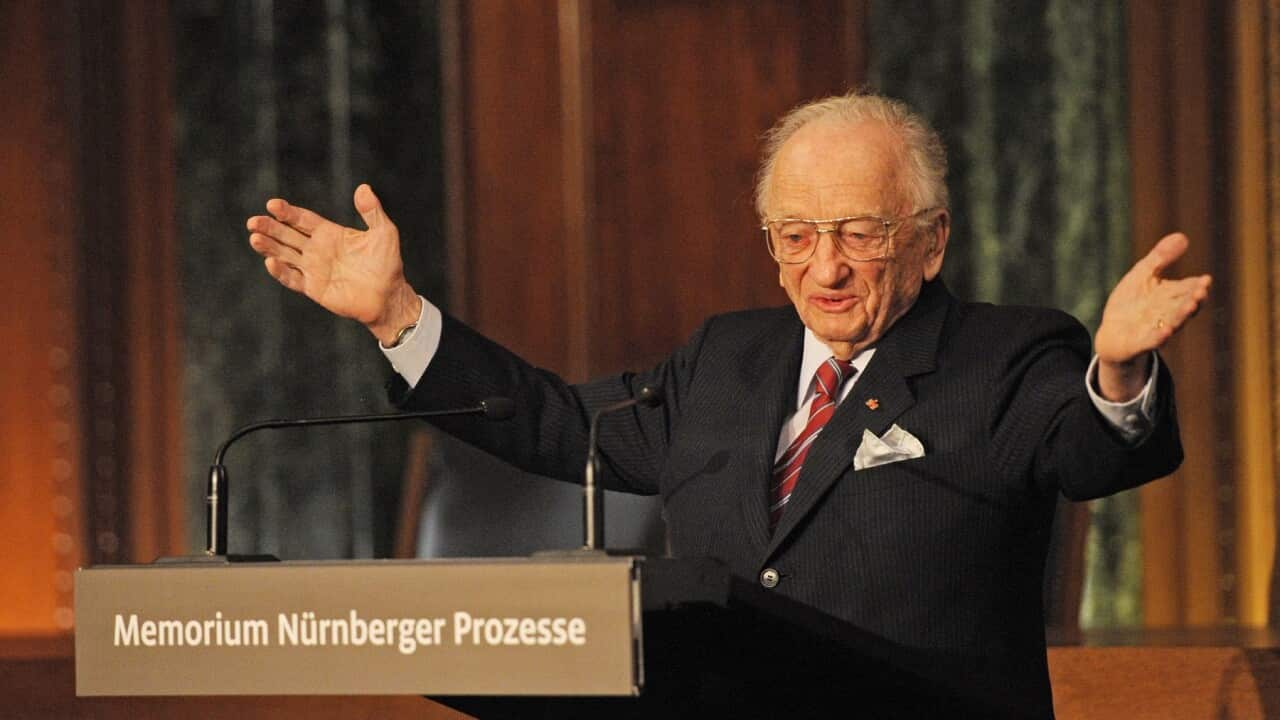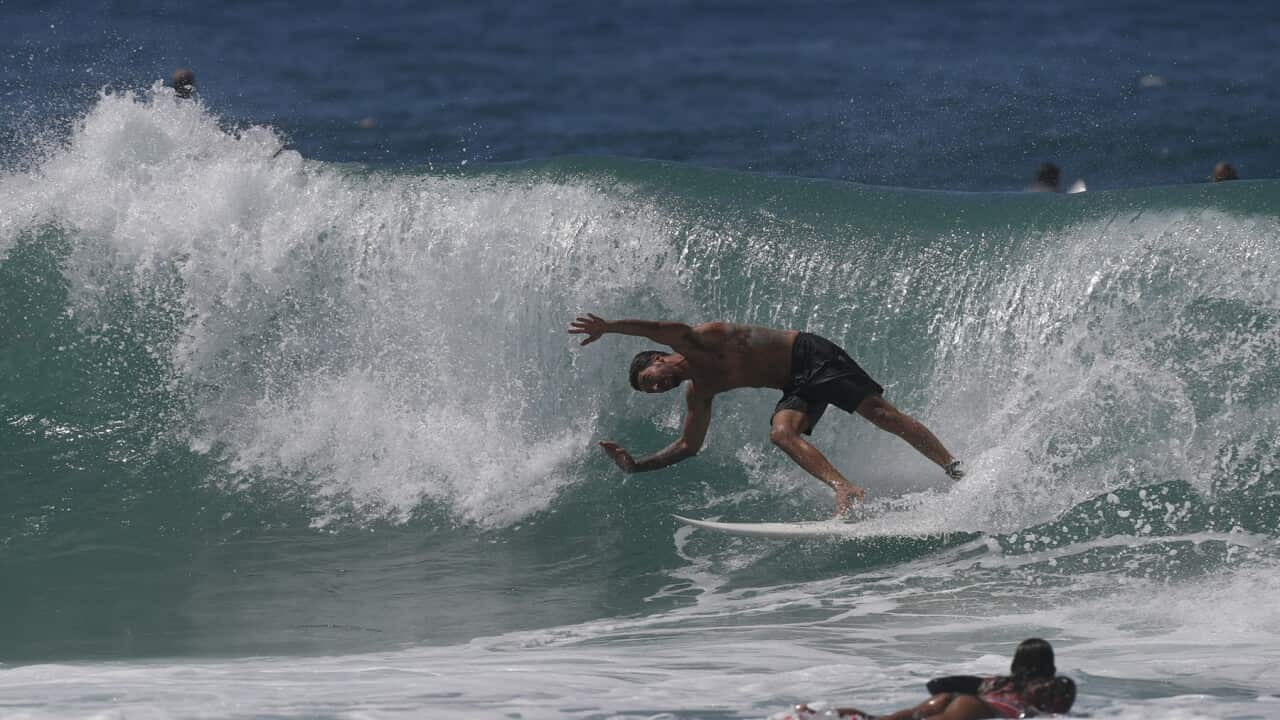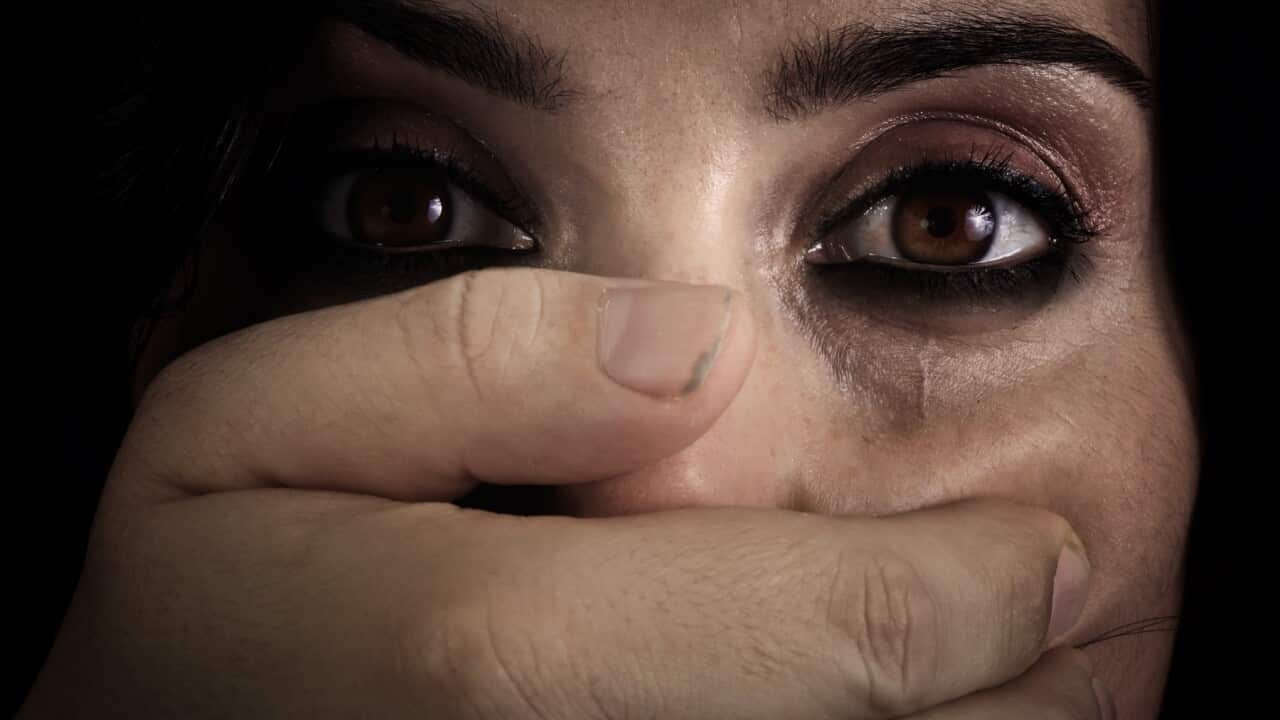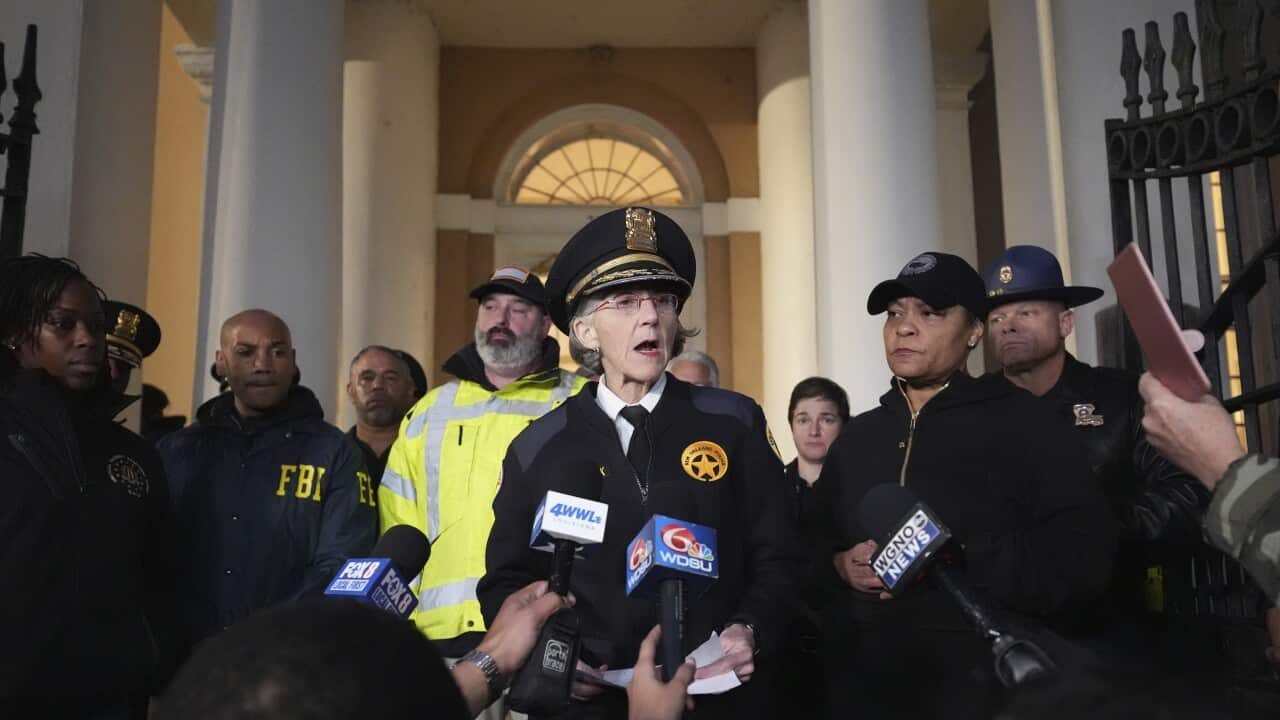English
The last surviving prosecutor from the Nuremberg trials in Germany that brought Nazi war criminals to justice after World War Two has died on Friday 7th of April 2023.
Benjamin Ferencz, a Harvard-educated lawyer and expert of international criminal law, died at an assisted living facility in Boynton Beach, Florida, at the age of 103.
The famed lawyer secured convictions of numerous German officers who led roving death squads during the war.
In an interview with the BBC, Mr Ferencz's son Donald says his father was a tireless fighter for justice.
"Every day of his life he worked on the project of making it a more humane world. This is not a guy who went fishing or played golf. This is a guy whose life mission was to make it a better world."
Born in Transylvania in 1920, Benjamin Ferencz migrated to New York with his parents as a young boy in order to escape widespread anti-Semitism.
After graduating from Harvard Law School, he joined the United States Army in time to take part in the D-Day Normandy landings in France.
He was just 27 years old when he served as a prosecutor at Nuremberg in 1947, where Nazi defendants faced a series of trials for crimes against humanity including the Holocaust, in which six million Jewish people and millions of others were systematically killed.
Mr Ferencz became chief prosecutor for the United States in the trial of 22 officers who led mobile paramilitary killing squads that were part of the notorious Nazi SS.
Donald Ferencz says his father's experiences serving in the war inspired his passion for justice.
"He went into the war in 1943 and he'd seen and experienced things that were so horrific that they fuelled the passion which took him - not only through the court at Nuremberg - but fuelled the rest of his life's commitment to trying to make it a more humane world under the rule of law."
Benjamin Ferencz entered the Nazi Buchenwald concentration camp as a young army sergeant.
He recalled the horrifying scenes he witnessed in a 2017 interview with the BBC.
"Dead bodies lying all on the ground — you can't tell if they're dead or alive. Skeletons dressed in rags, the smell of foul flesh burning. Stacks of human bodies, looking like bones, stacked one on top of the other. And when I wrote somewhere that I had 'peered into hell', I think hell would be paradise compared with what I saw."
The German officers Mr Ferencz prosecuted had led their death squads in carrying out mass killings targeting Jewish people, the Rom people and others, and were responsible for more than a million deaths.
The defendants were all convicted and 13 were given death sentences in what was Mr Ferencz's first career case.
While proud of his work, Mr Ferencz lamented — in a 2020 Newshour interview — that regardless of the outcome of the trials, true justice for the murder of millions was never possible.
"I never felt that I could do justice and it was an important point for me when I was considering 'what do I ask for?' The 22 defendants had - beyond any doubt - murdered over a million innocent and defenceless people. The scales of justice cannot be balanced by taking 22 defendants out of 3,000 mass-murderers and putting them on trial."
Following the trials, Benjamin Ferencz advocated for decades for the creation of an international tribunal, a goal realised with the 2002 establishment of the International Criminal Court that sits in The Hague, Netherlands.
He worked for several Jewish charitable groups to help Holocaust survivors regain properties, homes, businesses, art works, and religious items that had been confiscated by the Nazis.
He was a significant donor to the US Holocaust Memorial Museum established in Washington DC.
After the news of his death, the Museum tweeted a dedication to Mr Ferencz saying, "Today the world lost a leader in the quest for justice for victims of genocide and related crimes."
Italian
L’ultimo procuratore vivente dei processi di Norimberga, che consegnò i criminali di guerra nazisti alla giustizia al termine della Seconda Guerra Mondiale, è morto venerdì 7 aprile 2023.
Benjamin Ferencz, un avvocato laureatosi ad Harvard ed esperto di diritto penale internazionale, è deceduto presso una casa di riposo a Boynton Beach, in Florida, all’età di 103 anni.
Il celebre avvocato ottenne la condanna per numerosi ufficiali tedeschi che condussero ronde di squadroni della morte durante la guerra.
In un’intervista alla BBC, il figlio Donald, ha detto che suo padre era un instancabile combattente per la giustizia.
"Every day of his life he worked on the project of making it a more humane world. This is not a guy who went fishing or played golf. This is a guy whose life mission was to make it a better world."
Nato in Transylvania nel 1920, Benjamin Ferencz emigrò a New York con i suoi genitori da ragazzino, così da fuggire al dilagante antisemitismo.
Dopo essersi laureato in legge ad Harvard, si arruolò nell’esercito degli Stati Uniti, in tempo da prender parte all’approdo in Francia del D-Day.
Aveva appena 27 anni quando ricoprì il ruolo di procuratore nel 1947 a Norimberga, dove gli imputati nazisti affrontarono una serie di processi per crimini contro l’umanità incluso l’Olocausto, nel quale sei milioni di ebrei e milioni di altre persone vennero uccise sistematicamente.
Ferencz divenne capo procuratore per gli Stati Uniti nel processo di 22 ufficiali che condussero squadre mobili paramilitari di sterminio che erano parte delle famigerate SS naziste.
Donald Ferencz ha detto che l’esperienza vissuta da suo padre durante la guerra ispirò la sua passione per la giustizia.
"He went into the war in 1943 and he'd seen and experienced things that were so horrific that they fuelled the passion which took him - not only through the court at Nuremberg - but fuelled the rest of his life's commitment to trying to make it a more humane world under the rule of law."
Benjamin Ferencz entrò nel campo di concentramento nazista di Buchenwald da giovane sergente dell’esercito.
Ha ricordato le scene orrende di cui fu testimone in un’intervista rilasciata alla BBC nel 2017.
"Dead bodies lying all on the ground - you can't tell if they're dead or alive. Skeletons dressed in rags, the smell of foul flesh burning. Stacks of human bodies, looking like bones, stacked one on top of the other. And when I wrote somewhere that I had 'peered into hell', I think hell would be paradise compared with what I saw."
Gli ufficiali tedeschi processati dal signor Ferencz erano a capo delle loro squadre della morte nell’esecuzione di omicidi di massa di ebrei, Rom ed altri, ed erano responsabili di più di un milione di omicidi.
Gli imputati vennero tutti condannati, e 13 vennero giustiziati in quello che era il primo caso della carriera di Ferencz.
Nonostante fosse orgoglioso del suo lavoro, Ferencz si lamentò – in un’intervista del 2020 a Newshour – che nonostante l’esito dei processi, non fu possibile dare vera giustizia all’omicidio di milioni di persone.
"I never felt that I could do justice and it was an important point for me when I was considering 'what do I ask for?' The 22 defendants had - beyond any doubt - murdered over a million innocent and defenceless people. The scales of justice cannot be balanced by taking 22 defendants out of 3,000 mass-murderers and putting them on trial."
Dopo i processi, Benjamin Ferencz sostenne per decenni la creazione di un tribunale internazionale, un obiettivo raggiunto nel 2022 con l’istituzione della Corte penale internazionale, che si trova all’Aja, in Olanda.
Ferencz ha lavorato per numerose associazioni benefiche ebraiche per aiutare i sopravvissuti all’Olocausto a rientrare in possesso dei propri beni, case, imprese, opere d’arte e oggetti religiosi confiscati dai nazisti.
Inoltre, è stato un importante benefattore per il museo della Memoria dell’Olocausto negli Stati Uniti di Washington DC.
Dopo la notizia della sua morte, il museo ha twittato una dedica a Ferencz dicendo “oggi il mondo ha perso un leader nella ricerca di giustizia per le vittime del genocidio e di crimini collegati."
Report by SBS News.




